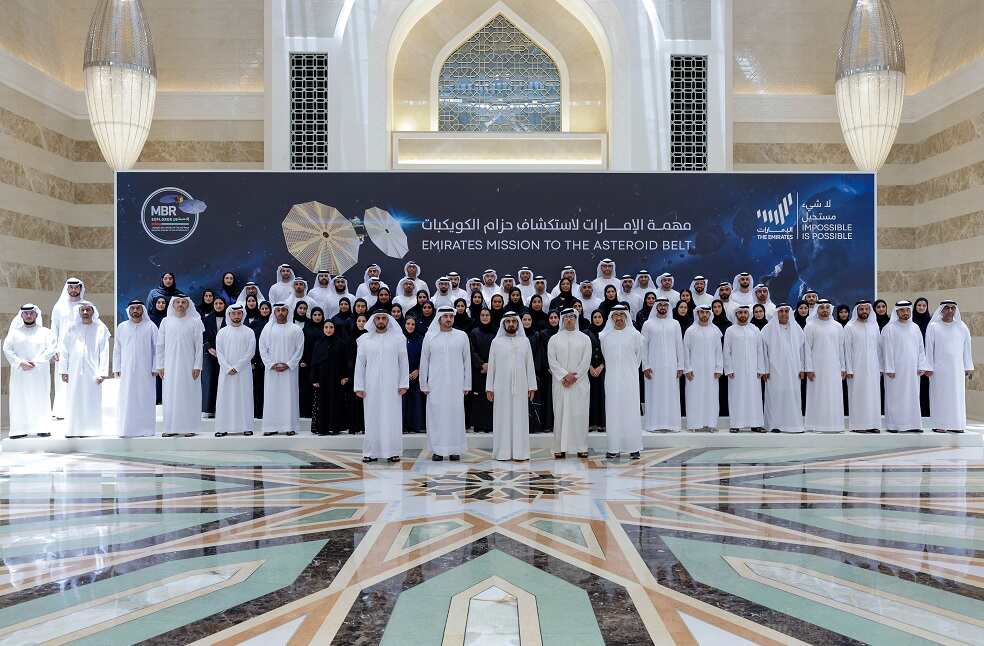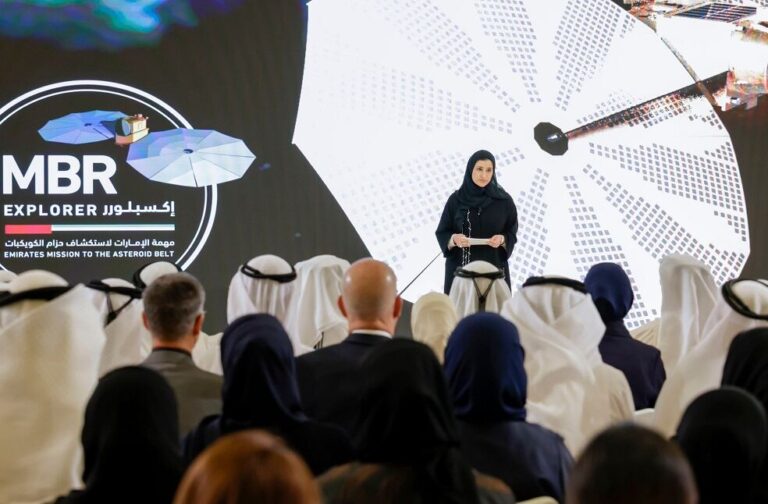Abu Dhabi, UAE: The United Arab Emirates (UAE) revealed its ambitious plan to send a spacecraft to the main asteroid belt of the solar system. The Emirates Mission to the Asteroid Belt aims to unravel the mysteries surrounding the origins of life on Earth. The UAE plans to launch the spacecraft, named MBR after Dubai’s ruler Sheikh Mohammed bin Rashid Al Maktoum, in 2028 to study a total of seven asteroids over the course of a 13-year mission.
Dubai’s ruler emphasized that this remarkable journey would cover a distance surpassing Mars and be ten times the distance covered by the UAE’s previous successful mission to Mars, the Hope Probe, which entered Mars’ orbit in February 2021. The Emirates Mission to the Asteroid Belt will span over 5 billion kilometers (approximately 3 billion miles), taking six years for development and seven years for exploration.
The spacecraft is expected to travel at an impressive speed of 33,000 KM (20,500 miles) per hour and will investigate six asteroids before culminating its exploration at the seventh and final asteroid, Justitia, in 2034. Justitia is of particular interest to scientists due to its intriguing red color and potential abundance of organic substances, including water.

Mr. Hoor al-Maazmi, a space science researcher at the UAE space agency, explained that Justitia’s origins and unique properties make it an excellent candidate for studying the genesis of life on Earth. Scientists believe that the asteroid’s distinctive redness could be attributed to its possible origin in the Kuiper Belt, where similar red objects are found. Moreover, Justitia has the potential to be water-rich, further increasing its scientific value.
The Emirates Mission to the Asteroid Belt marks a significant milestone for the UAE’s space exploration endeavors. The spacecraft will be developed by private UAE start-up companies and may lay the foundation for the country’s aspirations to extract resources from asteroids in the future. Furthermore, it aligns with the UAE’s ambitious goal of establishing a colony on Mars by 2117.
بحمدالله أطلقنا في قصر الوطن التفاصيل العلمية لأحد أهم مشاريعنا في مجال الفضاء "مشروع الإمارات لاستكشاف حزام الكويكبات " . المشروع يستمر 13 عاماً.. 6 سنوات للتطوير و7 سنوات رحلة استكشاف.. ستقطع خلالها المركبة الاماراتية MBR Explorer ٥ مليار كيلومتر متجاوزة كوكب المريخ لاستشكاف… pic.twitter.com/C0peR7JAMe
— HH Sheikh Mohammed (@HHShkMohd) May 29, 2023
The Gulf region has been at the forefront of space exploration advancements in recent years. Last week, two Saudi astronauts embarked on their maiden journey to the International Space Station (ISS), demonstrating the region’s increasing presence in space exploration. This achievement followed UAE astronaut Sultan al-Neyadi’s distinction as the first Arab to undertake a spacewalk the previous month. In 2019, Mr. Hazzaa al-Mansoori, also from the UAE, became the first Arab to reach the International Space Station.
As the UAE continues to push boundaries in space exploration, the Emirates Mission to the Asteroid Belt holds immense promise for unlocking the secrets of our solar system and shedding light on the origins of life on Earth.



